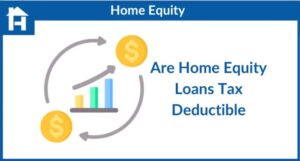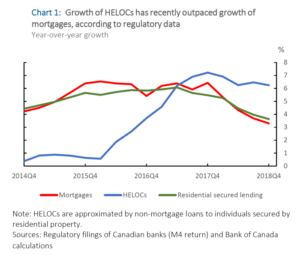Managing debt can feel like a full-time job, complete with the stress of a boss who never seems to be satisfied. But fear not! With the right strategies and a sprinkle of humor, we can turn this financial fiasco into a manageable masterpiece. Whether it’s budgeting like a pro or comparing debt management plans like they’re shoes on sale, we’re here to help you navigate the wild world of debt.
From consolidating loans to finding that perfect credit counseling agency, this guide will arm you with knowledge and tips that even your financially savvy friend would envy. So, grab a cup of coffee, and let’s dive into the delightful and sometimes chaotic universe of debt management!
Debt Management Strategies
Managing debt can feel like wrestling an octopus while trying to juggle flaming swords—confusing and a bit dangerous! However, with the right strategies, you can tame that wild beast and keep your finances in check. The following sections will explore various methods for managing personal debt effectively, compare different debt management plans, and provide handy tips for budgeting and tracking expenses to minimize debt.
Debt Management Methods
When it comes to debt management, a one-size-fits-all approach is as effective as wearing flip-flops in a snowstorm. Here are some popular methods that can help you navigate your way through financial chaos:
- The Snowball Method: This strategy focuses on paying off your smallest debts first, giving you quick wins and motivating you to tackle larger debts. It’s like cleaning your room by starting with the sock drawer—tiny victories lead to greater accomplishments!
- The Avalanche Method: Pay off debts starting from the highest interest rate to the lowest. This approach saves you money on interest in the long run. It’s like being the hero who defeats the biggest dragon first to claim the treasure!
- Debt Consolidation: Combine multiple debts into a single loan with a lower interest rate. Think of it as merging your five different phones into one super gadget that does it all—less clutter, more efficiency!
- Debt Settlement: Negotiate with creditors to settle your debts for less than what you owe. Imagine bargaining with a wizard for discounts on a magical potion—just make sure you have a skilled negotiator by your side!
Comparison of Debt Management Plans
Different debt management plans serve different needs, much like a buffet where everyone finds something they like. Here’s a breakdown of two common plans and their effectiveness:
| Debt Management Plan | Description | Effectiveness |
|---|---|---|
| Debt Management Plan (DMP) | A structured plan through a credit counseling agency where you make a single monthly payment to the agency, which then pays your creditors. | Highly effective for reducing monthly payments and eliminating interest in many cases, but may require you to close existing credit accounts. |
| Debt Settlement Plan | A plan where you negotiate with creditors to settle your debt for less than you owe, often leading to a lump-sum payment. | Can be effective for reducing total debt but may damage your credit score and requires a considerable sum to negotiate. |
Budgeting and Tracking Expenses
A solid budget is your financial compass, guiding you away from the treacherous waters of debt. Thoughtful tracking of your expenses provides insight into where your money flows, like a detective uncovering clues in a thrilling mystery.First, establish a budget by categorizing your income and expenses, allocating funds to necessities, and designating amounts for savings and debt repayment. Here are some tips to help you stay on the right track:
- Use Budgeting Apps: Tools like Mint or YNAB can make tracking expenses feel like playing a fun game instead of a chore!
- Keep a Spending Diary: Write down every purchase—yes, even that overpriced coffee. This practice can help identify spending habits that may require reining in!
- Review Regularly: Check in on your budget monthly. Just like checking your car’s oil, regular maintenance keeps your finances running smoothly.
- Set Up an Emergency Fund: Having a safety net can prevent you from using credit cards in a pinch. Think of it as your financial parachute, ready for any unexpected free-fall!
Debt Consolidation Options

When it comes to taming the wild beast known as debt, debt consolidation is like the superhero in a cape swooping in to save the day. It gathers your scattered financial obligations into one neat little package, making it easier to manage. But before you grab your cape and rush into the world of consolidation, let’s take a peek at the types of options available and the benefits and drawbacks of each.Debt consolidation can be achieved through various loan types, each with its own flair.
The most common forms include personal loans, balance transfer credit cards, and home equity loans. Each option comes with its own set of features, like a buffet where you can pick what suits your taste and appetite for financial responsibility.
Types of Debt Consolidation Loans
Here are the main types of debt consolidation loans that you can consider, each offering a unique flavor of financial relief:
- Personal Loans: These are unsecured loans offered by banks or credit unions that can be used to pay off your existing debts. They typically have fixed interest rates and terms, making them predictable.
- Balance Transfer Credit Cards: These cards allow you to transfer existing debts from high-interest cards to a new one with a lower or 0% introductory rate, often for a limited time. Just watch out for those sneaky fees!
- Home Equity Loans: By leveraging the equity in your home, you can secure a loan at a lower interest rate. However, keep in mind that your home is at stake if things go sideways.
It’s important to choose the right option as it can significantly impact your financial journey. Now, let’s dive into the pros and cons of using home equity loans for debt consolidation.
Pros and Cons of Home Equity Loans
Home equity loans are like that friend who offers to help you move but also wants to keep your favorite couch. Here’s a balanced look at what to expect:
“Using your home as collateral can be a double-edged sword; it can save you money, but it can also lead to a precarious situation.”
Pros:
Lower Interest Rates
Home equity loans generally offer lower rates compared to unsecured loans, making them a cost-effective option.
Tax Deductibility
In some cases, the interest on home equity loans may be tax-deductible, giving you extra financial breathing room.
Fixed Payments
Most home equity loans have fixed rates, which means your payments won’t fluctuate like the stock market. Cons:
Risk of Foreclosure
If you’re unable to repay the loan, you risk losing your home, which is a high-stakes game.
Closing Costs
These loans often come with fees and closing costs that can add up, eating into your savings.
Debt Spiral Potential
If you’re not careful, you could end up accumulating more debt while trying to pay off existing debts.
Interest Rates and Terms for Popular Debt Consolidation Options
Understanding the landscape of interest rates and terms for debt consolidation can help you make an informed decision. Here’s a handy table comparing some popular options:
| Loan Type | Average Interest Rate | Typical Term Length |
|---|---|---|
| Personal Loans | 6% – 36% | 2 – 7 years |
| Balance Transfer Credit Cards | 0% – 25% | 6 – 18 months (promotional period) |
| Home Equity Loans | 3% – 10% | 5 – 30 years |
Equipped with this knowledge, you can step into the debt consolidation arena with confidence, ready to tackle those pesky debts head-on. Just remember, a little humor and a lot of prudence can go a long way in your financial adventure!
Credit Counseling Services
Credit counseling services are like the superheroes of the financial world, swooping in to save the day (and your credit score) when debt threatens to overwhelm you. These organizations provide guidance, education, and support to individuals grappling with debt, helping them navigate the treacherous waters of financial challenges. Think of them as your trusty sidekick on the journey to financial freedom, armed with knowledge, strategies, and maybe a few cheesy jokes along the way.
The role of credit counseling in debt management is akin to having a GPS during a road trip—without it, you might end up driving in circles or getting stuck in a financial ditch. Credit counselors assess your financial situation, help create a budget, and develop a debt repayment plan tailored to your unique circumstances. This strategic partnership is essential for regaining control over your finances and transforming your financial health from “Oh no!” to “Oh yes!”
Finding a Reputable Credit Counseling Agency
Searching for a reputable credit counseling agency can feel like finding a needle in a haystack—but fear not! Here’s a nifty guide to ensure you pick a trustworthy counselor who won’t leave you feeling more tangled than your phone charger.
First, check their credentials. Look for agencies accredited by the National Foundation for Credit Counseling (NFCC) or the Financial Counseling Association of America (FCAA). Certification is like a badge of honor in the world of credit counseling, indicating that the agency adheres to ethical standards and best practices.
Next, consider their services. A good credit counseling agency should offer various services, including budgeting assistance, credit report reviews, and debt management plans. More options mean more chances for you to find a solution that fits like a glove.
Remember to read reviews and testimonials. Nothing says “trust me” like a satisfied client singing praises about their financial turnaround. Websites like the Better Business Bureau can help you gauge an agency’s reputation, making it easier to avoid those with shady practices.
Lastly, don’t hesitate to ask questions. A reputable credit counseling agency will happily provide information about their fees, services, and process. Transparency is key—if they’re dodging your inquiries faster than a cat avoiding a bath, it’s time to move on!
Benefits of Working with Credit Counselors
Partnering with credit counselors can significantly boost your financial literacy and improve your overall financial situation. Let’s explore some of the perks you can enjoy when you take this step.
Credit counselors are like personal trainers for your finances. They provide tailored advice that can help you understand your spending habits, budget effectively, and prioritize debt repayment. This knowledge equips you with the tools to make smarter financial decisions long after your counseling sessions end.
Additionally, credit counseling can lead to improved credit scores. By implementing strategies discussed in your sessions, you can increase your creditworthiness over time. This can open doors to better interest rates on loans and credit cards—like finding a golden ticket to the debt-free candy factory!
Working with credit counselors also enhances your financial confidence. Instead of feeling like a deer caught in headlights when faced with bills and financial decisions, you’ll be empowered to take charge of your finances. As you gain skills and knowledge, you’ll be equipped to tackle financial challenges head-on, armed with the wisdom to avoid pitfalls in the future.
In summary, credit counseling services are a valuable resource for managing debt, navigating the maze of financial commitments, and enhancing your financial education. With the right agency by your side, you can transform your financial life from chaos to clarity, one step at a time.
End of Discussion

As we wrap up this adventure through the twists and turns of managing debt, remember that every problem has a solution, even if it involves a bit of budgeting magic. By exploring various strategies, from debt consolidation to the support of credit counselors, you’re not just surviving your financial challenges; you’re mastering them! So go forth, wallet warriors, and conquer your debt with confidence and a smile!
Detailed FAQs
What is debt management?
Debt management involves strategies and plans designed to help individuals pay off their debts more effectively and efficiently.
How can I improve my credit score while managing debt?
Pay bills on time, reduce credit card balances, and avoid opening new credit accounts.
Are there any fees associated with credit counseling services?
Some credit counseling agencies may charge fees, but many offer services for free or at a reduced cost.
How long does debt management usually take?
It varies based on the amount of debt, your payment plan, and your financial habits, but it typically takes 3-5 years.
Can I manage my debt without professional help?
Absolutely! With a solid plan, budget discipline, and research, many people successfully manage their debt on their own.







